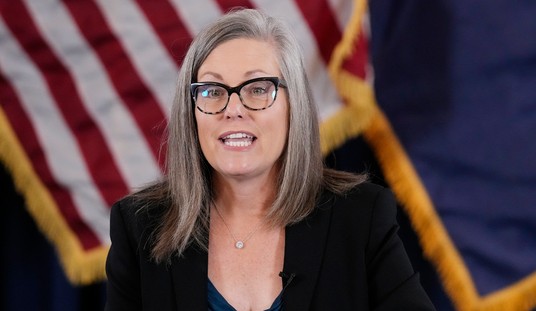The Ninth Circuit Court of Appeals has upheld a lot of California's infringements on the right to keep and bear arms over the years, from bans on commonly-owned firearms to zoning laws making it impossible for new gun stores to open for business. This week, though, a three-judge panel on the appellate court debated the merits of a carry law that's so bizarre it might very well go too far even for one of the most hostile jurisdictions in the land.
At stake is the constitutionality of California's rules regulating the open carry of firearms. Attorney General Rob Bonta maintains that, so long as California allows for concealed carry, it can regulate (and prohibit) open carry as much as lawmakers want. That viewpoint received a lot of pushback from the panel on Tuesday.
U.S. Circuit Judge Lawrence VanDyke, a Donald Trump appointee, was particularly bemused by the state's licensing regime under which only residents of counties with a population of less than 200,000 people can, at least in theory, apply for a permit to openly carry a firearm, leaving about 95% Californians who live in urban counties unable to get such a permit.
"If you live in San Francisco, say, you can't get a license to open carry — not only in San Francisco, but you can't get a license to open carry in Nevada County," VanDyke said, referring to the California county of about 100,000 residents in the Sierra Nevada mountains. "So, if you live in San Francisco, you are banned from open carry anywhere in the state."
Additionally, VanDyke noted, residents of rural counties who can get a license to open carry, can only do so in their own county and not in other rural counties, let alone in Los Angeles or San Francisco.
This, the judge said, appears to be similar to the ban New York had on the public carrying of firearms, concealed or otherwise, if a person didn't have proper cause to do so. That ban was thrown out by the 2022 U.S. Supreme Court decision in New York Rifle and Pistol Association v. Bruen.
VanDyke wasn't the only judge who appeared skeptical of the state's position. U.S. Circuit Judge N. Randy Smith, suggested that California's law runs afoul of the national tradition of gun ownership, particularly at the time of the founding.
"During that time period, there were no state statutes, there were no public judicial decisions, there were no legal commentators which addressed whether the states could ban open carry for self-defense while allowing concealed carry," Smith said. "None of the regulations banned open carry by allowing concealed carry, none of the history did that. How does that merit up with what California's doing?"
Aaron Pennekamp, a lawyer with the California attorney general's office, argued in response that the U.S. Supreme Court looked at the same historical evidence and concluded that state governments are free to adopt carry restrictions, including very restrictive ones that entirely prohibit one form of public carry, as long as another form of public carry is available.
Smith, on the other hand, insisted that the antebellum decisions all allowed states to ban concealed carry of firearms without a problem, but not open carry.
"They say the only manner of public carry that effectuates the right of self-defense guaranteed by the Second Amendment, and is therefore the public carry protected by the amendment, is open carry," the judge said.
The Ninth Circuit has previously held that neither open or concealed carry are protected by the Second Amendment, but that caselaw was left in tatters by the Bruen decision. And despite the arguments offered by Pennekamp, what the Supreme Court has actually said about the right to carry is that "Apart from a few late-19th-century outlier jurisdictions, American governments simply have not broadly prohibited the public carry of commonly used firearms for personal defense."
That's true for both concealed carry and open carry. The vast majority of states don't even require a permit to openly carry, so California's outright ban on the practice for most of the state's residents is an outlier, from both a historical and current perspective.
"There's zero historical analog for banning open carry," Amy Bellantoni, Baird's lawyer, told the panel. "It's been the preferred method of carrying weapons since the beginning of time and the dawn of ages."
I'd quibble slightly with Bellantoni's characterization of open carry. She's absolutely correct that open carry has been the preferred method of carrying weapons in most cultures and for most human history, in 2025 concealed carry is by far the more popular choice for those exercising their right to bear arms.
It should, however, still be a choice, and in California it's simply not an option for most residents.
With VanDyke on the panel and the skepticism displayed by Smith to the state's arguments, I feel pretty good about the future of Baird v. Bonta/ You can check out the oral arguments in their entirety in the window below.









